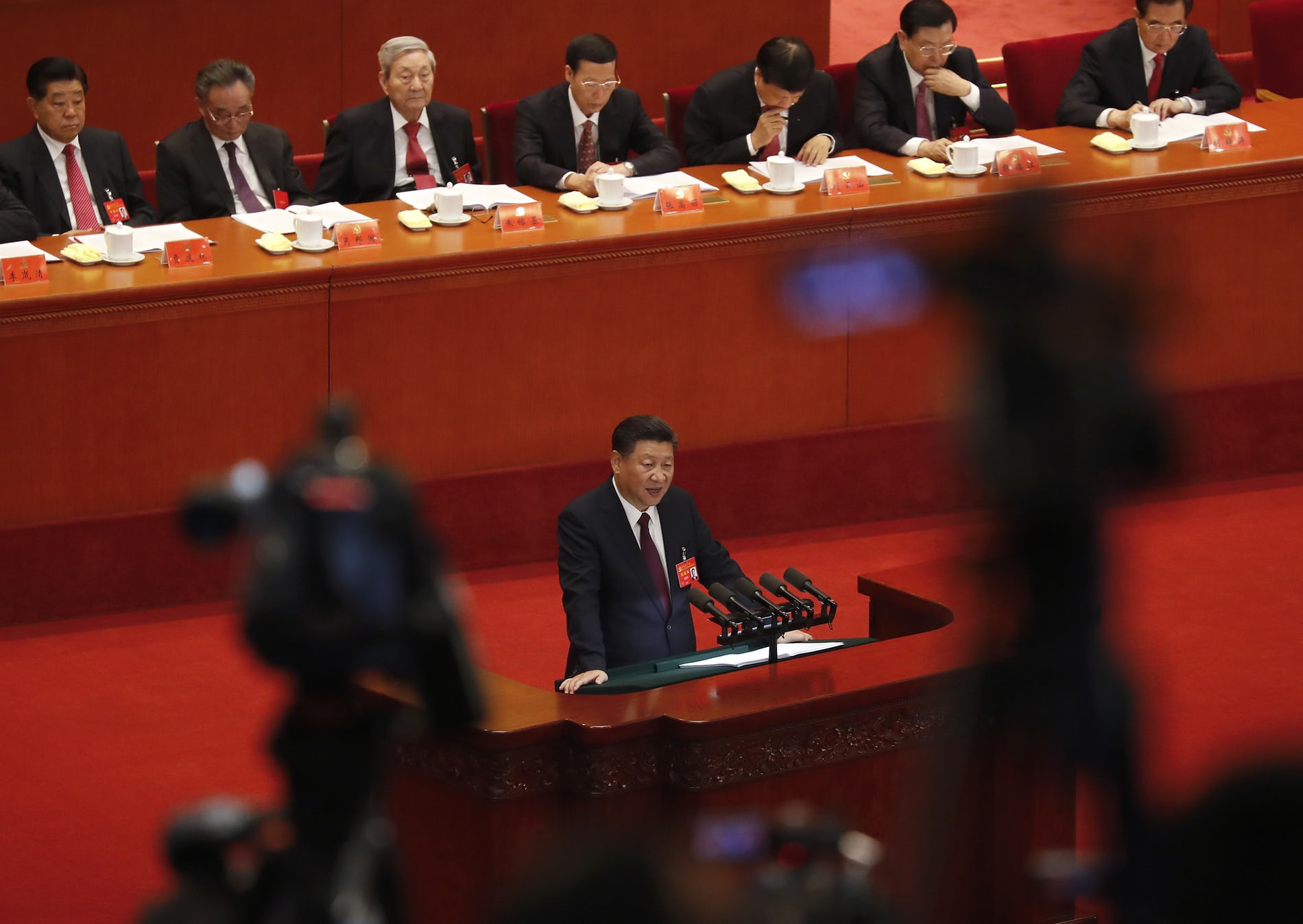
(TibetanReview.net, Oct19, 2017) – The 19th five-yearly congress of the Communist Party of China opened on Oct 18 in the Great Hall of the People in Beijing with its General Secretary Xi Jinping presenting his report in a marathon three-and-half-hour speech in which he presented his vision of a new era for China for the next over three decades. His vision, or Thought, encapsulated by China’s official Xinhua news agency Oct 18 as ‘Socialism with Chinese Characteristics for a New Era’, is expected to be enshrined in the party constitution.
It will then become part of what is called ‘theoretical guidance for the Party’, which already includes ‘Marxism-Leninism’, ‘Mao Zedong Thought’, ‘Deng Xiaoping Theory’, the ‘Theory of Three Represents’ of Jiang Zemin, and the ‘Scientific Outlook on Development’ of Hu Jintao. Xinhua said Xi’s Thought built on and further enriched these guidance and represented the latest achievement in adapting Marxism to the Chinese context.
Xi, whose relentless pursuit of power has seen many of his rivals purged on corruption charges during his first five-year term, is also expected to be elevated to a status above those enjoyed by his two immediate predecessors, to place him at a level more akin to those of Mao and Deng.
Xi’s report, a result of year-long protracted consultations with diverse stakeholders and experts, not only promised to usher in a new era with new thought, but also to build a great modern socialist country. It acknowledged that not only had the people’s material and cultural needs grown, but also that “their demands for democracy, rule of law, fairness and justice, security, and a better environment were increasing”.
In this connection, the report vowed to develop China into a ‘great modern socialist country’ by 2050 in a two-stage development plan. In the first stage, from 2020 to 2035, the party “will build on the foundation created by the moderately prosperous society with a further 15 years of hard work to see that socialist modernization is basically realized”. And in the second stage, from 2035 to the middle of the 21st century, the party will, “building on having basically achieved modernization, work hard for a further 15 years and develop China into a great modern socialist country that is prosperous, strong, democratic, culturally advanced, harmonious, and beautiful”.
On the economy, the report said it has been transitioning from a phase of rapid growth to a stage of high-quality development. It said “China will support state capital in becoming stronger, doing better, and growing bigger, turn Chinese enterprises into world-class, globally competitive firms” with the interest rates and exchange rates becoming more market-based.
The report said China “will only become more and more open” and “significantly ease market access and protect the legitimate rights and interests of foreign investors”.
The party will set up a central leading group for advancing law-based governance in all areas to “strengthen oversight to ensure compliance with the Constitution, advance constitutionality review, and safeguard the authority of the Constitution”.
The report vowed to build “a great modern socialist country” which will be “characterized by harmonious coexistence between man and nature” by establishing “regulatory agencies to manage state-owned natural resource assets and monitor natural ecosystems, and develop a nature reserves system composed mainly of national parks”.
The report vowed to basically complete the modernization of the national defense and armed forces, with IT application coming a long way and strategic capabilities seeing a big improvement, by 2035. “The people’s armed forces will be transformed into world-class military by the mid-21st century,” it said.
In diplomacy, the report claimed that “no matter what stage of development it reaches, China will never seek hegemony or engage in expansion”. However, Xi did say China “has the resolve, the confidence and the ability” to defeat any Taiwanese bid for formal independence. He added that Beijing would continue to pursue peaceful means to bring under control the self-governing island while vowing never to allow the permanent separation of ‘any part’ of China.
And calling corruption the greatest threat to the party, the report said the party had gained overwhelming momentum in its fight against it and was determined to secure a sweeping victory in the party building efforts.
The week-long party congress will end with a new lineup of top leaders for the 25-member politburo and its currently seven-member standing committee being announced. Xi is expected to be able to stack both the bodies with his own men and supporters and thereby greatly further strengthen his power.
Besides, many experts and observers see Xi as having a design to hold on to power beyond the unwritten, two five-yearly terms. One likely indication of this will be whether the new politburo Standing Committee will see a potential successor or successors being installed after the recent purge of some promising candidates on corruption charges.


